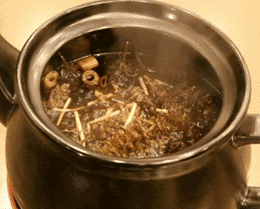Yin's
TCM Clinic
307 Regents Park Rd
London N3 1DP
Chinese Herbs
Traditionally, Chinese Herbal Medicine (CHM) involves the use of natural plants, minerals and even some small amount animal products. However, TCM practitioners are NOT allowed to use minerals, animal products or endangered species. In the UK only herbal products are used in clinical practice. Each herb has its own specific characteristics and particular medical use to treat various diseases, rectifying the over-activity or under-activity of Yin and Yang, and helping restore the body to its normal physiological functions.

Chinese herbs must only be prescribed by qualified TCM practitioners. Normally, the practitioner must conduct a diagnostic consultation which will go into detail about your specific condition, medication that you are taking, diet, past medical history, lifestyle, stress etc. The practitioner will take your pulses and look at your tongue before making a prescription. A prescription is a preparation of several herbal products which is based on syndrome differentiation and according to the principles of TCM diagnostic theory. It may be given as teas, granules, tinctures or pills.




How to prepare Chinese herbs?
-
Equipment
Traditionally, a special glazed clay herb cooker is used but any ceramic, stainless steel, or glass pot will do. Do not use a container that is made out of cast iron or aluminum. Chinese herbs can interact with these metals and cause a chemical reaction that could alter the therapeutic quality of your herbs.
-
Water
In ancient times the source of the water was an important issue. Some teas required water from a spring; others called for rainwater. At present, unless specifically noted under the method of preparation for a particular formula, tap water is just fine. Any drinking water will do. The purity and cleanliness of the water you choose is a personal choice. Normally tap water will do the job.
-
Soak the Herbs
Place the herbs in water. The water should cover the herbs by about an inch and a half. A good rule of thumb is to have about twice as much water in the pot as herbs. Allow the herbs to soak for 30-60 minutes. This will facilitate the extraction of the active ingredients during the process of decoction.

-
Boil and Simmer
Bring the water to a rolling boil. Then, turn down the heat to a low simmer and cover. Do not lift the lid to look at the herbs too often as this will diminish the "flavor" and allow the volatile oils to evaporate out of the tea very easily.
Cook herbs for 20-30 minutes.
-
Strain the Tea and Cook the Same Herbs a Second Time
The most common and cost effective method of brewing a decoction is to decoct the ingredients twice. Both times the herbs are boiled around 20-30 minutes. After the second cooking, discard the herbs. The liquid are combined and will give you a one-day supply of tea.


